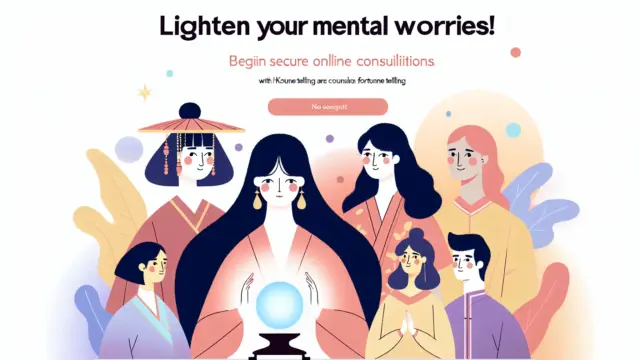Understanding the psychology behind men watching over their partners can be a game-changer in your love life. Have you ever wondered why your partner seems to keep an eye on you? This behavior often stems from a deep-seated instinct to protect and support. By tapping into this psychology, you can enhance the emotional connection and trust between you and your partner.
In many relationships, watching can manifest in various forms, both direct and indirect. Recognizing these behaviors can provide valuable insights into your partner’s feelings and intentions. This understanding can lead to more meaningful conversations and help you navigate any uncertainties in your relationship.
Moreover, these watching behaviors can significantly impact the dynamics within your partnership. When both partners feel secure and valued, it fosters a healthy environment for love to thrive. So, if you’re curious about how this protective instinct can affect your relationship, you’re in the right place to find out.
Join us as we explore the depths of men’s protective psychology and discover practical tips to enhance your relationship. Whether you’re looking to improve communication or build trust, understanding the nuances of watching behavior can set the foundation for a stronger bond.
- Learn about the psychology behind men’s protective watching behavior.
- Discover how watching can improve trust and communication in relationships.
- Get practical tips for fostering a sense of security in your partnership.
What is the Psychology of Men Watching Over?
Definition of Watching Behavior
Watching behavior in relationships can be understood as a form of attentiveness that men often display towards their partners. This behavior can range from simple acts, like checking in during a conversation, to more protective actions, such as being observant in social situations. It’s important to recognize that this form of watching isn’t necessarily about control; instead, it reflects a desire to care and be present for their partner.
Understanding this behavior can help you see it in a new light. Rather than feeling stifled or smothered, you might find comfort in knowing that this attentiveness often stems from genuine feelings of love and concern.
- Watching behavior can include checking in during conversations.
- It may manifest in protective actions during social situations.
- Recognizing this behavior can shift your perspective on your partner’s intentions.
Psychological Background of Watching
The psychology behind why men exhibit watching behavior can be quite fascinating. Many men are wired to be protectors, which is often rooted in evolutionary psychology. This instinct drives them to be vigilant about their partner’s well-being, creating a sense of security within the relationship. When a man watches over his partner, it can be a sign that he values her and wants to ensure her happiness.
Moreover, this protective behavior can also be influenced by personal experiences and upbringing. Men who have witnessed strong, supportive relationships may be more inclined to replicate those patterns in their own partnerships. On the other hand, past experiences of loss or betrayal can heighten a man’s need to watch over his partner, stemming from a desire to prevent similar pain.
It’s also essential to note that watching behavior can enhance emotional intimacy. When partners feel that their significant other is genuinely attentive, it fosters a deeper connection. Communication becomes more open, as both partners feel secure enough to share their thoughts and feelings.
In this way, understanding the psychological aspects of watching behavior can help you create a more trusting and supportive environment in your relationship. So, as we delve deeper, consider how these insights might apply to your own experiences and interactions with your partner.
- Protective instincts often stem from evolutionary psychology.
- Personal experiences can shape a man’s watching behavior.
- Watching can enhance emotional intimacy and connection.
- Understanding this behavior fosters trust and open communication.
Variations of Watching Behavior
Direct Watching
Direct watching behavior refers to the more overt forms of attentiveness that men show towards their partners. This can take many shapes, from asking detailed questions about your day to actively engaging in conversations about your feelings. When a man directly watches over his partner, it often signals that he is deeply invested in your well-being and wants to be involved in your life.
In social settings, direct watching can manifest as a man staying close to you, making sure you’re comfortable, or even defending you in discussions. This type of behavior can make you feel cherished and supported, reinforcing the bond between you two. Instead of viewing it as suffocating, consider it an opportunity to deepen your connection through open dialogue.
Moreover, direct watching can also enhance mutual understanding. When men express their attentiveness openly, it encourages women to share their thoughts and feelings more freely. This practice builds a foundation of trust, allowing both partners to feel seen and valued. As a result, you may find that your relationship flourishes in this nurturing environment.
- Direct watching can include asking about your day.
- It often signifies genuine interest and support.
- This behavior enhances mutual understanding and trust.
Indirect Watching
On the other hand, indirect watching involves subtler forms of attentiveness that men display without being overtly obvious. This could mean paying attention to your body language, noticing when you’re feeling down, or even remembering small details that matter to you. Indirect watching may not always be verbal, but it reflects a man’s deep-seated care for his partner.
This behavior can also take the shape of actions that demonstrate support. For example, he might help you with tasks that you find challenging or anticipate your needs without you having to ask. These small gestures can go a long way in making you feel appreciated and understood.
Recognizing indirect watching is essential because it highlights the various ways men show their love. Understanding these nuances can help you appreciate the depth of your partner’s feelings. It also opens up room for conversation about how both partners can express their concerns and support for one another more effectively.

If you found this discussion on watching behaviors in relationships intriguing, you might also appreciate our article titled Unlock the Secrets of Why Men Pretend Not to Notice and Deepen Your Love!. It delves into the psychology behind why some men may appear oblivious to certain situations, helping you understand your partner’s behavior better and fostering deeper connections.
- Indirect watching includes non-verbal attentiveness.
- It can manifest through thoughtful actions and gestures.
- Recognizing this behavior enhances appreciation and communication.
Changes in Relationships Caused by Watching
Building Trust
When men engage in watching behaviors, it can significantly contribute to building trust within a relationship. This trust doesn’t happen overnight; it develops gradually as partners learn to rely on each other. When a man consistently shows that he cares through his attentiveness, it creates a safe space for both partners to express their feelings. The more you notice his protective nature, the more secure you might feel in sharing your own vulnerabilities.
This nurturing atmosphere encourages you to open up about your thoughts and needs. As trust deepens, both partners become more comfortable with discussing sensitive topics, which can further strengthen the bond between you two. Recognizing this dynamic can help you see how watching behaviors play a pivotal role in your relationship’s foundation.
- Watching behaviors create a safe environment for sharing feelings.
- Trust builds gradually through consistent attentiveness.
- A secure atmosphere fosters open conversations about vulnerabilities.
Improving Communication Quality
The quality of communication can greatly improve when men exhibit watching behaviors. When partners feel that their significant other is truly paying attention, it encourages them to engage more openly. This can lead to deeper discussions about expectations, dreams, and even fears. The act of being watched can make both partners feel valued, which in turn enhances their willingness to communicate.
In addition, when a man shows that he is observant and aware of his partner’s needs, it reduces misunderstandings. For instance, if he notices when you’re upset and checks in on you, it can open the door to a conversation about what’s bothering you. By addressing these issues together, you can avoid potential conflicts and build a more harmonious relationship.
Moreover, as communication improves, so does the emotional connection between partners. When conversations flow naturally, it strengthens the bond you share, making it easier to navigate life’s challenges together. Recognizing the positive impact of watching behaviors can inspire both partners to invest in their communication skills, ultimately leading to a more fulfilling relationship.

If you’re intrigued by how certain behaviors can deepen emotional connections in relationships, you might find the insights in the article “What Makes Men Adjust Their Return Time? Tips to Deepen Your Relationship” particularly enlightening. This piece explores the psychological motivations behind men adjusting their schedules for their partners, offering practical advice on how to foster a more fulfilling relationship through understanding and communication.
- Improved communication encourages deeper discussions about feelings.
- Watching behaviors reduce misunderstandings and conflicts.
- Enhanced emotional connection leads to a more fulfilling partnership.
Importance of Watching in Partnerships
Sense of Security from Watching
When men engage in watching behaviors, it often creates a sense of security within the relationship. This security comes from knowing that your partner is genuinely invested in your well-being. It’s comforting to have someone who pays attention to your needs, both emotionally and physically. This attentiveness can make you feel cherished and understood, reinforcing the bond between you.
Moreover, feeling secure allows you to be more open and vulnerable with your partner. When you know that your partner is watching over you in a caring way, it fosters a safe space for sharing your thoughts and feelings. This dynamic can greatly enhance the emotional connection you share, allowing both partners to thrive in a nurturing environment.
The significance of this sense of security cannot be overstated. It lays the groundwork for a healthy relationship where both partners feel valued and appreciated. So, if you’re experiencing this watching behavior from your partner, take a moment to recognize the positive impact it can have on your relationship.
- Watching behavior fosters a sense of security and safety.
- It encourages openness and vulnerability in conversations.
- This dynamic enhances the emotional connection between partners.
Tips and Practices for Watching
To make the most of watching behaviors in your relationship, there are some practical tips you can incorporate. First, make it a habit to check in with each other regularly. This doesn’t have to be formal; simple questions about each other’s day can show that you care and are attentive to one another’s feelings. Small gestures like these can go a long way in reinforcing trust and connection.
Additionally, consider being more observant of your partner’s non-verbal cues. This might involve noticing changes in their mood or stress levels and responding appropriately. If you sense that something is off, don’t hesitate to ask how they’re feeling. Engaging in these practices can help solidify the foundation of your partnership.
By actively participating in watching behaviors, both partners can create a more supportive and loving environment. Remember, it’s all about mutual attentiveness. When you both commit to being present for each other, the relationship can flourish, leading to deeper connections and a happier partnership.
- Regularly check in with each other to show you care.
- Be observant of your partner’s non-verbal cues.
- Engage in practices that foster mutual attentiveness and support.
Summary of Key Insights on Men’s Watching Behavior
In our exploration of the psychology behind men’s watching behavior, we uncovered how this instinctual attentiveness can significantly enhance the emotional dynamics of a relationship. By understanding the motivations behind these actions, partners can foster a deeper sense of trust and security. Recognizing that this behavior is often rooted in care rather than control allows for more open communication and connection, ultimately leading to a more fulfilling partnership.
Additionally, the practice of engaging in both direct and indirect watching behaviors can create a nurturing environment where both partners feel valued and understood. Encouraging these behaviors helps to build a solid foundation for love to thrive, supporting each other’s emotional needs and enhancing the overall quality of the relationship.
- Men’s watching behavior stems from protective instincts and genuine care.
- Understanding this behavior can lead to improved trust and communication.
- Engaging in watching practices fosters a supportive and loving partnership.
We’d love to hear your thoughts on this topic! How do you perceive watching behavior in your relationship? Feel free to share your experiences or ask any questions in the comments below.







Comment